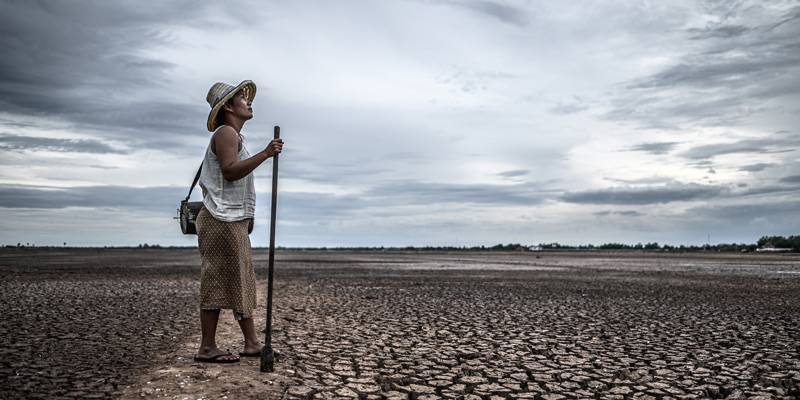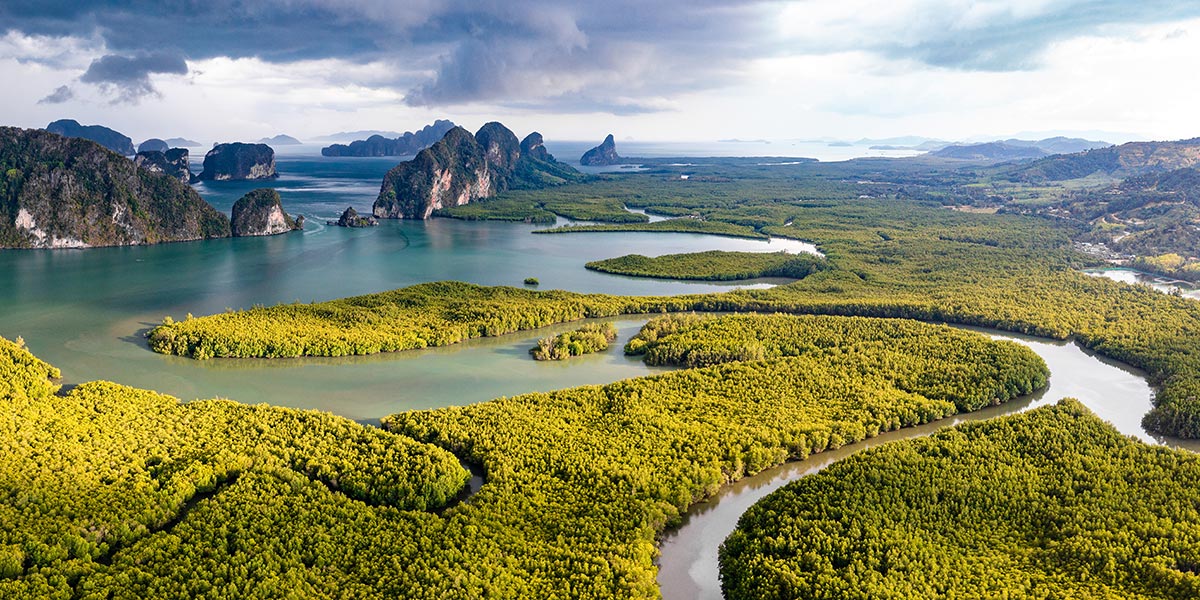The present era of rapid technological advancement and unprecedented comfort has put our planet in grave peril. Today’s environmental challenges are complex and deeply interwoven, threatening the natural world, human health, and economic stability. From the inconspicuous crisis of biodiversity loss to the visible menace of plastic pollution, these issues demand our immediate attention.
Unmasking the Environmental Challenges of Our Era
Food Waste
A significant amount of food produced globally goes to waste, contributing to hunger and environmental issues. Up to 30% of food waste occurs before it reaches consumers during storage, transport, and processing. 828 million people were affected by food scarcity in 2021 – 46 million more than the previous year.
Biodiversity Loss
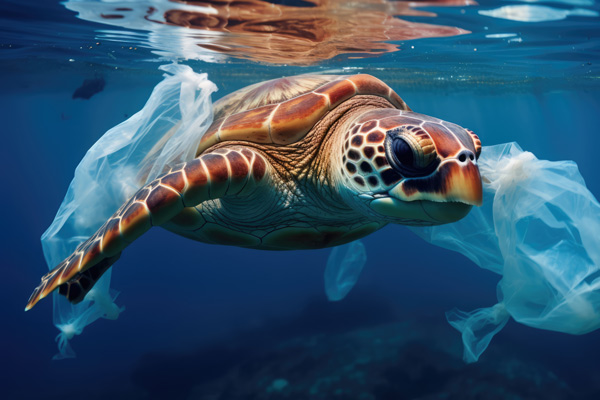
The current global extinction, often called the sixth mass extinction or Anthropocene extinction, is largely driven by human activities.
The leading causes of biodiversity loss are deforestation for agriculture & urban development and pollution. Climate change also threatens global biodiversity, with predictions that critical hotspots such as coral reefs will be lost within the century if global warming continues at its present rate.
Plastic Pollution
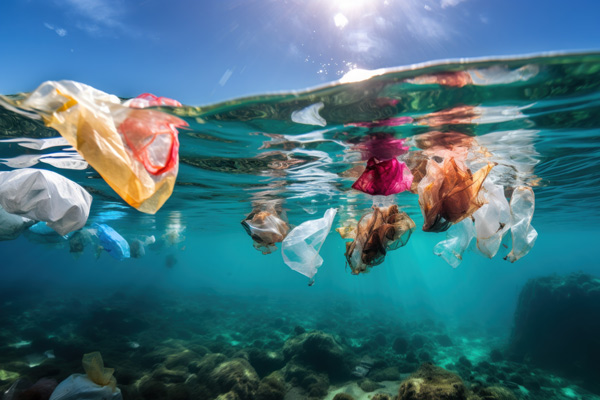
Only 15% of plastic waste is recycled. The rest ends up in landfills or as pollution, taking hundreds of years to break down naturally. Microplastics in the atmosphere have led to calls for reduced plastic use, increased recycling, and the development of green alternatives.
Air Pollution
It is estimated that seven million people die annually from air pollution-related illnesses. According to the World Health Organization (WHO), 9 out of 10 people breathe highly polluted air. This problem is particularly severe in low and middle-income countries, where most deaths occur. Furthermore, air pollution contributes to 11.65% of deaths globally. These alarming numbers highlight the urgent need for action to reduce air pollution.
Melting Ice Caps
Global warming is melting polar ice caps, resulting in rising sea levels and coastal erosion. Earth’s temperature has risen by an average of 0.14° Fahrenheit (0.08° Celsius) per decade since 1880, or about 2° F. The rate of warming since 1981 is more than twice as fast: 0.32° F (0.18° C) per decade.
Ocean Acidification
Increased CO2 levels are causing oceans to become more acidic, threatening marine life. Over the past 200 years, the ocean has taken up around 30% of all CO2 emissions. This absorption has altered calcium carbonate production in oceanic waters, resulting in Ocean Acidification.
Food and Water Insecurity
As many as 828 million people were affected by hunger in 2021, an increase of 46 million people from the previous year and 150 million more from 2019. The proportion of people affected by hunger jumped to 9.8% of the world population in 2021. Despite being self-sufficient in food production, food distribution remains unequal in India, with many people lacking access to adequate and nutritious food. The country has 307.7 million people facing severe food insecurity.
Soil Degradation
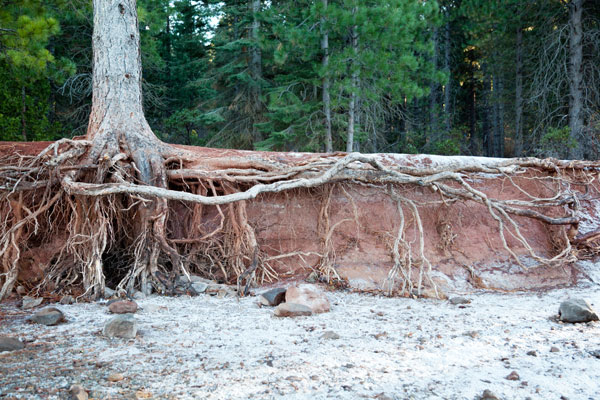
Scientists have warned that 24 billion tonnes of fertile soil are lost each year due to unsustainable agriculture practices. If this trend continues, 95% of the Earth’s land areas could become arid by 2050.
Climate Change
Rising greenhouse gas emissions drive global warming and extreme weather events. Since 1990, there has been a 41% increase in total radiative forcing – the warming effect that occurs when solar radiation entering the atmosphere is trapped by greenhouse gases.
Damaged Ozone Layer
Certain industrial chemicals have thinned the Ozone layer, increasing exposure to harmful UV radiation. In early 2022, the overall concentration of ozone-depleting substances in the mid-latitude stratosphere had fallen just over 50% back to levels observed in 1980, before Ozone depletion was significant.
Extreme Weather
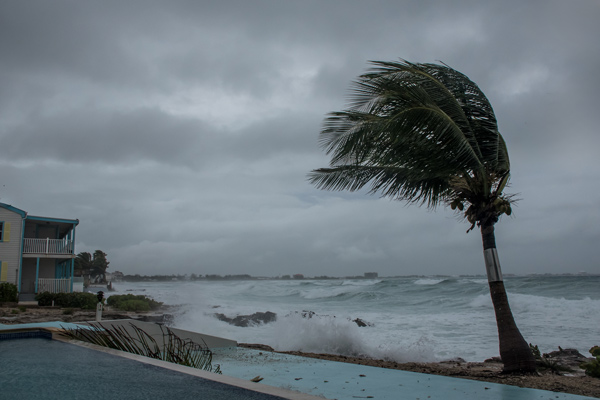
Record-breaking heat waves on land and in the ocean, droughts, wildfires, and widespread flooding during hurricanes are all increasing in frequency and intensity. This drastic change is due to increased greenhouse gas emissions —primarily from burning fossil fuels for transportation, heat, and electricity — in the past 150 years.
Coral Extinction
Coral reefs, which support at least 25% of marine, are also instrumental to the protection of coastlines, and the economic security of hundreds of millions of people. However, they face a significant threat due to climate change, ocean acidification, land-based pollution, marine pollution, and destructive fishing practices.
Between 2009 and 2018, the world lost approximately 14% of its coral reefs, equivalent to around 11,700 square kilometres of coral – more than all the living coral in Australia! This is primarily attributed to elevated temperatures, which have led to increasingly frequent mass global coral bleaching events.
Unravelling the Root Causes of Our Environmental Crisis
Wealth Inequality
Wealthier nations and individuals consume more resources and produce more waste. The world’s richest 1% emit more than twice as much CO2 as the poorest 50% of the world.
Industrialisation
Rapid industrial growth often comes at the expense of the environment. In India, for example, despite representing less than 5% of the world’s population, Indians consume 17% of the world’s energy and account for 15% of the world’s GDP.
Deforestation
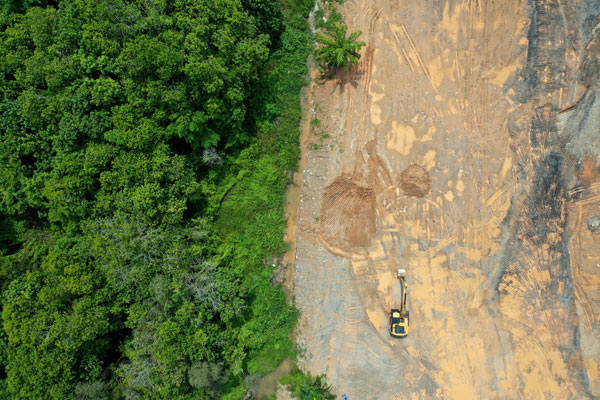
The growing need for agricultural land and timber inevitably results in widespread deforestation, leading to biodiversity loss and increased CO2 emissions. 13,000 sq. km of Amazon rainforest was cleared in 2021 – 20% more than the previous year and the highest recorded number in 15 years.
Agriculture
The agriculture, forestry and land use sectors contribute between 13% and 21% of global greenhouse gas emissions. Livestock and livestock-related activities are responsible for over 18% of human-made greenhouse gas emissions, including 9% of global carbon dioxide emissions, 35-40% of global methane emissions, and 64% of global nitrous oxide emissions. These emissions are caused by enteric fermentation, manure, deforestation, fertiliser use, and fuel-intensive farming practices.
Fossil Fuel Consumption
Burning fossil fuels for energy produces air pollution and greenhouse gases. The richest 1% of people, earning $109,000 a year, are the fastest-growing source of emissions.
Urban Sprawl
Rampant urbanisation results in the destruction of natural habitats, which in turn impacts biodiversity and CO2 emissions. Rapid urban sprawl contributes to environmental degradation. For instance, urban sprawl increased by 95% in 24 years, with built-up areas growing by almost 28 km² daily.
Our Collective Responsibility
Government Action
Governments must enforce stricter environmental regulations, invest in renewable energy, and promote sustainable practices. The United Nations has deemed 2020-30 the Decade of Restoration, a globally coordinated effort to heal the planet. More than 50 countries have pledged to protect 30% of land and oceans by 2030.
Corporate Action
Companies should immediately reduce waste, lower emissions, and make durable and recyclable products. Some corporations are already transforming their supply chains and operations in favour of a circular economy.
Social & Individual Action
Every individual effort makes a difference towards environmental conservation. Some of the ways we can make a positive contribution include:
- Using eco-friendly products
- Waste segregation & home composting
- Tree planting
- Rainwater harvesting
- Eating organic, plant-based foods
- Choosing renewable energy
- Using sustainable transport options
The United Nations’ Sustainable Development Goal 13 calls for urgent action to combat climate change and its impacts. The Paris Agreement, adopted by countries to limit global temperature rise to well below 2 degrees Celsius, is a significant step towards combating climate change. Change is happening faster as more people turn to renewable energy and other measures to live more sustainably. While much has been done, there is still a long way to go. Sustainable practices must be adopted at every level of society to ensure a healthy planet for future generations.
Sources:
Climate Change: Global Temperature | NOAA Climate.gov
Land Degradation | GEF (thegef.org)
Ocean Acidification: The what, where, how, why and what next on this major ocean issue | IUCN
UN Report: Global hunger numbers rose to as many as 828 million in 2021 (who.int)
Nutrition and food security in India – statistics & facts | Statista
Food Security | Rising Food Insecurity in 2023 (worldbank.org)
Air pollution (who.int)
Air Pollution Facts, Causes and the Effects of Pollutants in the Air (nrdc.org)
Air Pollution – Our World in Data
Status of Coral Reefs of the World 2020 | UNEP – UN Environment Programme
Climate Facts and Figures – United Nations Sustainable Development
Path to recovery of ozone layer passes a significant milestone – NOAA Research
The environmental impact of governance: a system-generalized method of moments analysis | SpringerLink
This is the state of inequality in 2022, according to Oxfam | World Economic Forum (weforum.org)
Industrialization- Statistics & Facts | Statista
Consequences of Overproduction and Overconsumption | Net Impact
Deforestation Facts and Statistics (theworldcounts.com)
Emissions by Sector (ourworldindata)
Greenhouse gas emissions from agriculture (wikipedia.org)
Emissions due to agriculture (fao.org)
Fossil Fuels – Our World in Data
How Wealth Inequality Powers Climate Change (bloomberg.com)
How Wealth Inequality Powers Climate Change (bloomberg.com)
Population growth, environmental degradation and climate change | United Nations
How Does Overpopulation Affect Sustainability? Challenges and Solutions | Earth.Org
Rapid rise in urban sprawl: Global hotspots and trends since 1990 | PLOS Sustainability and Transformation
5 Environmental Conservation Wins of 2021 (globalcitizen.org)
Climate Action – United Nations Sustainable Development
Earth Day: 5 ways we’re working to heal our planet and combat climate change | UN News
